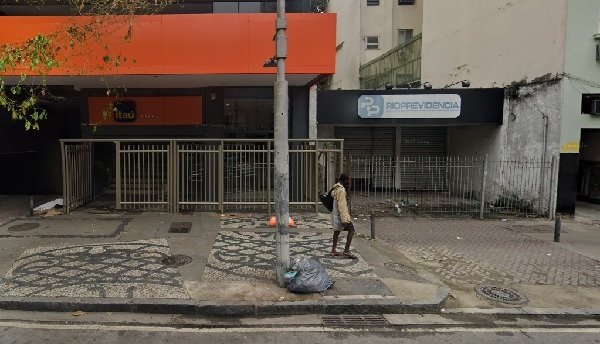On Tuesday (05/08), a joint operation by the State Government, involving officers from the 2nd Military Police Battalion (BPM) in Botafogo and agents from the State Superintendence for the South and Central Zones (Segov), was carried out on Marquês de Abrantes Street in Flamengo. The area, located near number 177, has been the subject of concern among residents who report the emergence of a site for drug use and potentially drug trafficking. The operation aimed to identify the presence of narcotics or bladed weapons and to evaluate the security risk posed by the situation. Despite the intervention, no arrests were made during the operation.
This Content Is Only For Subscribers
To unlock this content, subscribe to INTERLIRA Reports.
Resident Complaints
Marquês de Abrantes Street, one of Flamengo’s busiest and most important thoroughfares, has once again become the focus of escalating complaints from residents. The growing concentration of homeless individuals near a specific section of the street has raised renewed concerns about public safety and hygiene. According to reports, the site is becoming a well-known area for drug consumption and possibly illegal sales. Residents also allege cases of verbal intimidation, physical aggression, and other threatening behavior by individuals occupying the space.
Worsening Problem
According to long-time residents, the issue began to escalate significantly in March of this year, when a single man took up semi-permanent residence in the area. Over time, he was joined by others, and the group has since grown in both size and permanence. On rainy days, residents report that the group swells in number, seeking shelter under building overhangs and awnings. In addition to the noticeable accumulation of trash, drug paraphernalia, and human waste, locals have voiced alarm over the presence of sharp objects and aggressive behavior from individuals in the group, including incidents in which dogs belonging to them have attacked passersby.
Police Operation
During Tuesday’s operation, officers approached and questioned three men found at the scene. All three were subjected to searches and background checks, which revealed prior criminal records. One of the individuals had previously served a 22-year sentence for drug trafficking, while the other two had prior convictions for theft and robbery. Since none of the men were currently wanted by the justice system and had completed their prison terms, no arrests were made. All three refused any social assistance or support services offered. The Military Police stated that they plan to intensify joint operations involving the 2nd BPM and Segov in the area, intending to control illegal drug activity and identify any bladed weapons being carried by individuals on the street.
Regular Approaches
On Monday (04/08), in response to inquiries, the Municipal Department of Social Assistance (SMAS), which is responsible for supporting homeless populations, confirmed that its teams conduct regular outreach throughout the length of Marquês de Abrantes Street. These efforts aim to offer shelter and social services. Meanwhile, the Municipal Secretariat of Public Order (Seop) stated that it carries out daily actions focused on urban organization, clearing public spaces, and providing shelter options for homeless individuals across various areas of the city. Despite these efforts, residents believe more decisive and permanent interventions are necessary to address the root causes of the issue.
Analysis:
This case reflects the complex interplay between homelessness, public health, and urban security in a densely populated area of Rio de Janeiro. While residents are justifiably concerned about security risks, especially those related to drug use, physical aggression, and the presence of weapons, the situation also points to deeper systemic failures. The refusal of support services by individuals on the street suggests a possible mistrust of public institutions or a lack of tailored, long-term solutions capable of addressing substance dependence and social vulnerability.
From a security perspective, the involvement of individuals with criminal records in the area increases the urgency for continuous monitoring and preventive action. However, public security strategies must go beyond reactive policing and include coordinated policies that combine law enforcement with mental health support, substance abuse treatment, and access to housing.




